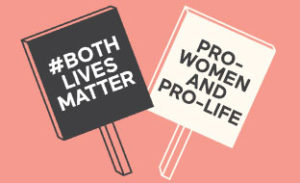Commenting on the decision of the Appeal Court today Dawn McAvoy, spokeswoman for Both Lives Matter, said,
Court of Appeal says abortion legislation is a matter for the Assembly “Both Lives Matter acknowledges that today’s decision involved manifestly complex legal and moral issues. We are aware that while some will be pleased with the judgement others will find it difficult. There are no easy solutions in hard cases. We welcome the clear signal from the judiciary that there is no right to abortion under ECHR law and that the margin of appreciation which Northern Ireland exercises is legitimate and proportional. The judgement was very clear that it was not for the court to overreach and amend the law on abortion in Northern Ireland, that this was the role of the legislature. Regions in the UK are entitled to formulate their own policies around access to abortion and Northern Ireland’s law recognises and protects as far as possible that both lives matter even in circumstances of serious malformation of foetus, rape or incest.
Both Lives Matter continues to advocate for both lives and resist changes to the law which would weaken the protections for women and unborn children. We firmly believe the law should be supported by the provision of more services and support for women and children, allowing real choices that enable every woman in every pregnancy to choose life. In GB, at least 90 per cent of Down’s diagnosed babies are aborted because a culture of termination has developed.
In Northern Ireland, we are reframing the abortion debate – progress happens when we stop linking women’s rights to the destruction of unborn human life. Compassion, freedom and equality are not found in increased abortion but in better services for women and their families including the unborn child. Both Lives Matter are telling a better story. It’s a story that is difficult at times and which challenges the autonomy of our culture, but one that is creative, redemptive and ultimately more human.”

